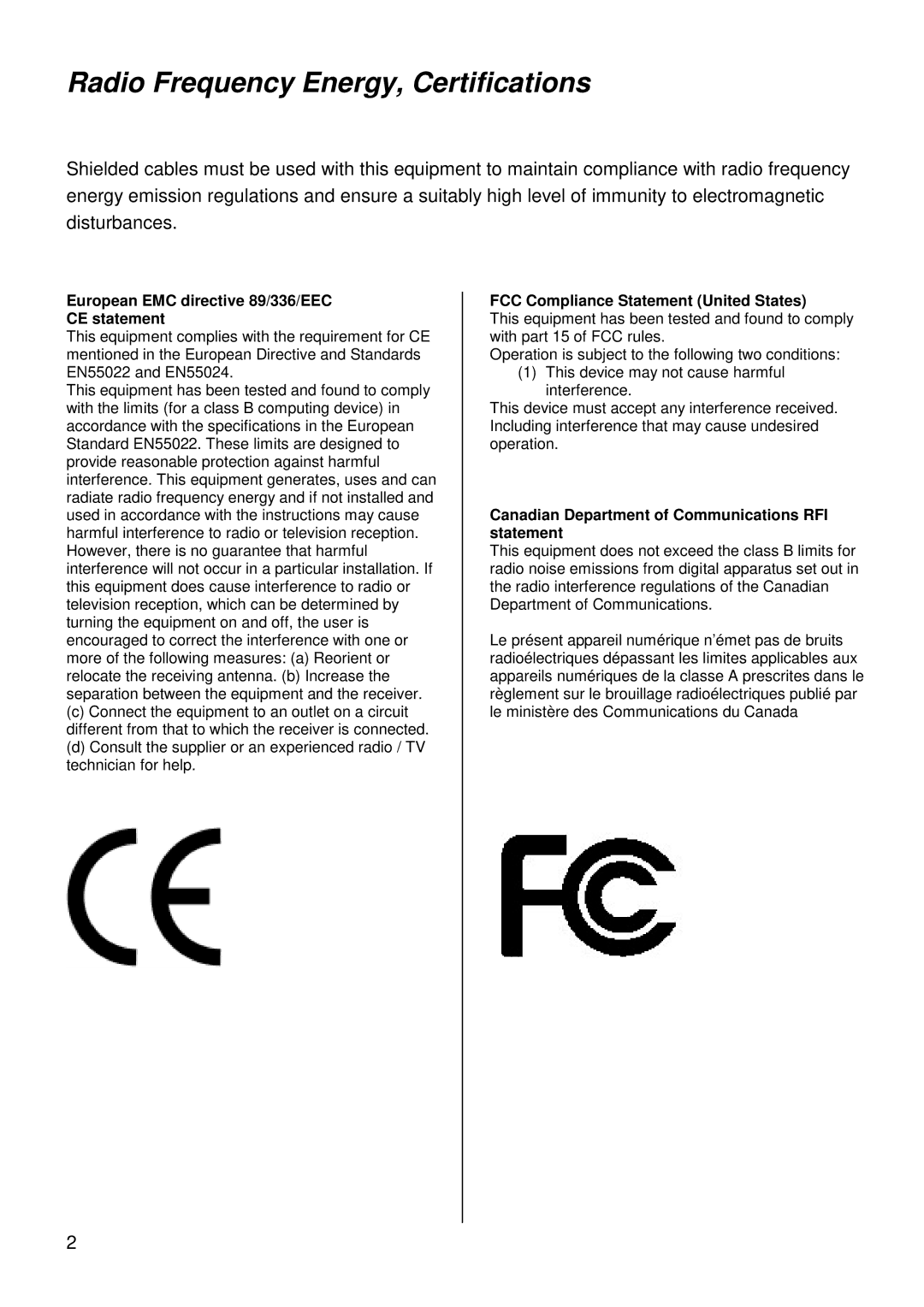
Radio Frequency Energy, Certifications
Shielded cables must be used with this equipment to maintain compliance with radio frequency energy emission regulations and ensure a suitably high level of immunity to electromagnetic disturbances.
European EMC directive 89/336/EEC
CE statement
This equipment complies with the requirement for CE mentioned in the European Directive and Standards EN55022 and EN55024.
This equipment has been tested and found to comply with the limits (for a class B computing device) in accordance with the specifications in the European Standard EN55022. These limits are designed to provide reasonable protection against harmful interference. This equipment generates, uses and can radiate radio frequency energy and if not installed and used in accordance with the instructions may cause harmful interference to radio or television reception. However, there is no guarantee that harmful interference will not occur in a particular installation. If this equipment does cause interference to radio or television reception, which can be determined by turning the equipment on and off, the user is encouraged to correct the interference with one or more of the following measures: (a) Reorient or relocate the receiving antenna. (b) Increase the separation between the equipment and the receiver.
(c)Connect the equipment to an outlet on a circuit different from that to which the receiver is connected.
(d)Consult the supplier or an experienced radio / TV technician for help.
FCC Compliance Statement (United States)
This equipment has been tested and found to comply with part 15 of FCC rules.
Operation is subject to the following two conditions:
(1) This device may not cause harmful interference.
This device must accept any interference received. Including interference that may cause undesired operation.
Canadian Department of Communications RFI statement
This equipment does not exceed the class B limits for radio noise emissions from digital apparatus set out in the radio interference regulations of the Canadian Department of Communications.
Le présent appareil numérique n’émet pas de bruits radioélectriques dépassant les limites applicables aux appareils numériques de la classe A prescrites dans le règlement sur le brouillage radioélectriques publié par le ministère des Communications du Canada
2
